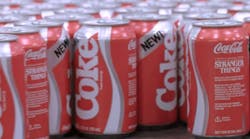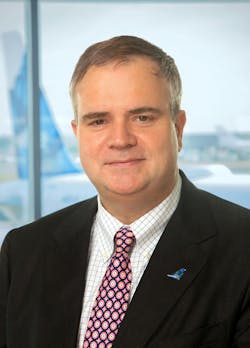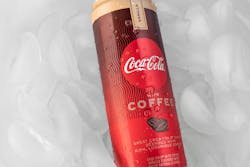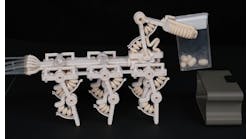Editor’s note: Welcome to So That Happened, our editors’ takes on things going on in the manufacturing world that deserve some extra attention. This will appear regularly in the Member’s Only section of the site.
New Leadership at Airbus Americas
Boeing rival Airbus SE is making a move in North America. The European aerospace company has chosen Robin Hayes to lead Airbus Americas following the retirement of C. Jeffrey Knittel on June 3.
Hayes has 35 years of leadership experience in the aerospace industry, including at JetBlue, where he served as CEO for nine years, and British Airways, where his career spanned 19 years. He also was chair of the International Air Transport Association from 2020 to 2022.
Hayes will lead the aerospace company’s commercial aircraft business. He also will be responsible for coordinating North America’s helicopters, space and defense businesses. The North American region includes more than 10,000 Airbus employees and 50 sites.
In making the announcement, Airbus CEO Guillaume Faury said the aerospace manufacturer looks forward to further growing its North American footprint.
Upon his retirement, Knittel will remain at Airbus through a transition period. During his tenure, Knittel doubled the region’s commercial aircraft deliveries, the company said.
—Jill Jusko
Don’t Trust AI? No Worries. Hardly Anyone Knows How to Use It
Young Americans trust AI to make unbiased decisions and provide accurate information than old people but only 18-to-29-year-olds have faith that AI will make ethical decisions.
It’s almost as if the young folk don’t read or watch science fiction, you know?
To continue being part of the problem when it comes to AI hype by talking about it again, YouGov released survey data about how Americans feel about AI and the results are very much generational. 53% of our senior citizens don’t trust AI to make ethical decisions at all. Only 17% of 18-to-29 year olds feel the same way.
But if you look at the data in aggregate, 54% of Americans are cautious about AI and 49% are concerned. Only 15% are concerned that AI will cause the end of the world as we know it. Something occurred to me when I read that data point – no one claiming that AI might kill us all ever says how it’d kill us, do they?
To steer this back into the realm of corporate leadership, lack of organizational readiness is the reason most companies can’t deliver on the promise of AI, according to a new study from global cloud enterprise company IFS. Maybe that’s because everyone is rushing to adopt the new technology far too quickly? 82% of respondents said that’s precisely the problem.
The same group also said they feared pilot purgatory for AI projects based on failure to plan, implement and communicate properly. 80% of respondents said they also have insufficient skills in-house to successfully adopt AI.
So, no one knows how AI might kill us all, but the vast majority of companies don’t know how to implement it, anyway.
—Dennis Scimeca
Skilled Trades Ready for their Closeup
With National Skilled Trades Day one week away, 3M is aiming to drive interest in trade careers with their docuseries “Skilled.” Four featured tradespeople share their personal introduction and story surrounding their respective trades with the ultimate goal of dismantling common misconceptions about their fields.
According to the 2024 3M State of Science Insights survey, skilled trades are the highest recommended career path for young people at 83%. By creating and sharing the docuseries with teachers and students, 3M is providing role models who represent the viability of trade careers.
“Skilled” highlights a diverse group of tradespeople, including:
- Paige Knowles: a plumber
- Andrea Martin: a safety and fall protection specialist
- Anni Martinez: a gaffer who specializes in lighting design
- Cedric Smith: a welder
The full “Skilled” docuseries is available here.
—Anna Smith
The eVTOL Sector Goes to Washington
Looking for a sign that the nascent electric vertical takeoff and landing industry is quickly moving closer to becoming a very visible part of our lives? Archer Aviation Inc., one of the handful of firms working to develop and commercialize urban electric air taxis, has opened an office in Washington, D.C., and recruited two government relations veterans to bolster its connections to lawmakers and government agencies.
Climbing aboard at Archer are Melissa McCaffrey, a former Overair and Aircraft Owners and Pilots Association lobbyist who will lead the company’s work at the federal, state and local levels, as well as former U.S. Secretary of Transportation senior staffer Lynda Tran, who has taken an advisory role. They are working alongside several external lobbyists as well as Billy Nolen, a former acting administrator of the Federal Aviation Administration, who joined Archer last spring as chief safety officer and was recently named the company’s chief regulatory affairs officer.
It's all getting very serious very quickly.
—Geert De Lombaerde
Could AI Develop Something as Stupid as New Coke?
“You’re a robot, you don’t even have a sense of taste.”
Turanga Leela, Futurama
Computers are great with numbers and other forms of data, so obviously, they should be great at determining what humans like to eat and drink.
Coca-Cola Co. plans to spend $1.1 billion with Microsoft on cloud computing and generative AI services, possibly leading to an even better version of New Coke in the future. (For those of you not taking statins and whose joints don’t constantly hurt, Coca-Cola’s 1985 decision to reformulate the most-popular soft drink in the world into something that tasted bad is considered one of the worst business blunders of the past century).
“We've made significant progress to accelerate systemwide AI transformation across The Coca-Cola Co. and its network of independent bottlers worldwide," Judson Althoff, executive vice president and chief commercial officer at Microsoft with absolutely no help from any chatbots. "We're proud to support Coca-Cola as it continues to embrace the era of AI."
So, I asked Microsoft Bing Copilot what flavors it would add to the iconic soft drink to make it 25% tastier. The results ranged from obvious to lackluster to kind of awful sounding.
Cherry flavor, vanilla flavor or, going extra crazy, cherry vanilla! Ok, so products already on the market. You’re not making a great case for AI paving a path the Flavortown.
Coca-Cola with coffee. Coke tried that in 2018, and it’s actually quite delicious (sounds crazy, but the combination really worked). Unfortunately, it was a commercial flop and has been discontinued in most markets.
Coconut syrup. Ok, Copilot, you’re just messing with me now, right? The benefits are extra sweetness and a thicker texture, because I can’t count how often I’ve been drinking a Coke and thought, “Hmmm, needs to be more like oatmeal.”
Rum. That’s just lazy. I was hoping for a bold new future for the product, something that truly taps into the potential of AI to change human existence. Do better, Microsoft!
To be fair, the companies say the big potential for AI at Coca-Cola is to “improve workplace productivity.” So, expect fewer flavor tips and more suggestions on how you’re doing your job wrong.
—Robert Schoenberger









